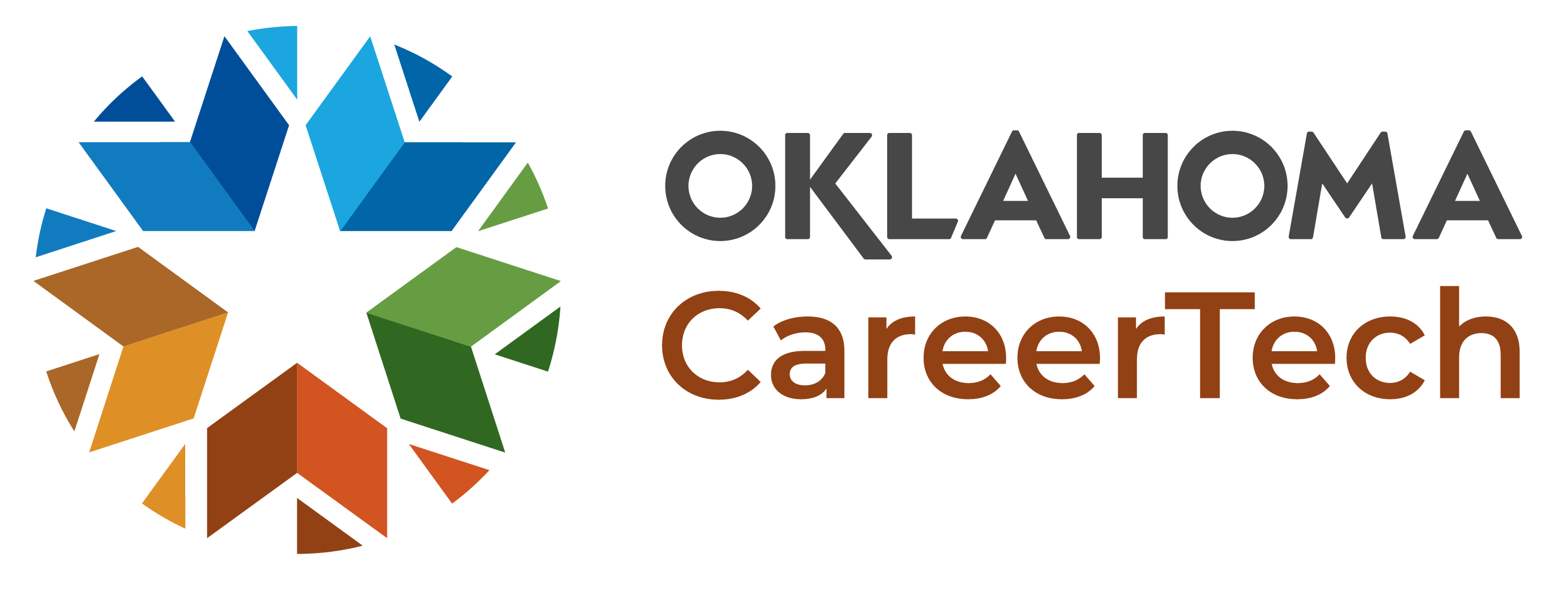Science academies opened doors to careers (and romance) for recent CareerTech grads
What do sauerkraut and kombucha have to do with CareerTech? Both the holistic tea and the German cabbage dish involve fermentation, a process Ashley Powers said she learned about in the biomedical sciences program at Red River Technology Center in Duncan, Oklahoma 10 years ago.
Ashley enrolled at the technology center in high school. She wanted to become a doctor, but she was homeschooled and didn’t have access to the hands-on educational experiences that would be available at Red River.
At the tech center, she learned to make sauerkraut and kombucha, which she occasionally makes at home. But that science-based cooking lesson was just one of many life-changing benefits of the biomed program.
Flash forward nearly a decade, and Ashley Powers is now Dr. Ashley Watson. She is a resident physician at Capital Region Medical Center in Jefferson City, Missouri. In 2024, she hopes to complete her residency and receive her board certification.
She credits Red River for helping her reach her career goals, but she gives additional credit to HOSA, for introducing her to her future husband and medical colleague.
HOSA is a co-curricular organization for students interested in health careers. Ashley’s involvement in that CareerTech student organization at Red River led her to Tyler Watson, then HOSA state president. Their paths hadn’t crossed at school, because Tyler attended Francis Tuttle Technology Center. Ashley was president of her local HOSA chapter, however, and one day she reached out to Tyler for advice.
“She was looking at colleges and wanted to know more about the biology/pre-med program at the University of Oklahoma,” Tyler said. “We started talking, and the rest is history.”
(Well, the rest is science, actually.)
Today, Tyler is completing his medical residency in Missouri, alongside his wife. Like Ashley, he credits Oklahoma CareerTech for laying the groundwork for his medical career.
In 2013, Tyler was a Putnam City High School student. He said he enrolled in Francis Tuttle’s biosciences and medicine academy because he wanted a challenge. The academy offered that challenge, as well as insight into potential career paths.
Both The Red River program and the Francis Tuttle academy are Project Lead The Way Biomedical Sciences programs.
“I loved science and I knew I wanted to pursue more rigorous training than what my high school alone could offer,” Tyler said, “but I wasn’t yet committed to a specific career path.”
In their respective programs at separate tech centers, the two received invaluable technical skills as well as life skills. Ashley said Red River prepared her for the rigorous medical training that followed. Her new acquired skill set included public speaking, study skills, and an understanding of experimental design.
“These skills have made my life richer and have made transitions through seasons in my career go more smoothly,” she said.
Tyler also credits CareerTech for his public speaking skills.
“I’m fairly shy by nature,” he said. “I still struggle with public speaking but learning those foundational skills as a high schooler allowed me to compensate for and improve my social interactions over time, giving me confidence to approach intimidating situations.”
Francis Tuttle also helped Tyler become more adaptable, he said. An important life skill for a student and a doctor.
“Learning to adapt early to academic challenges and new situations has made life run more smoothly,” he said.
After graduating from their respective technology centers, the Watsons followed nearly identical higher education paths, eventually receiving their Doctor of Osteopathic Medicine degrees from Oklahoma State University’s College of Osteopathic Medicine.
For Tyler and Ashley, CareerTech was a college-prep experience. But Tyler said for some of their fellow HOSA members, CareerTech was their primary vocational training.
“CareerTech directly and successfully prepared them for a career,” Tyler said. “For all of us, choosing CareerTech showed a dedication to improving skills necessary for a career.”
Ashley’s CareerTech experience offered her the applied learning experience she had wanted as a high schooler.
“CareerTech grads offer employers a spectrum of highly-qualified individuals who have experienced hands-on training beyond what an academic-only setting can provide,” she said. “They are an essential part of today’s workforce.”
They’ve studied together, worked together and lived together. But even though their education and career paths have been similar, their approaches to medicine are different, according to Tyler. As a result, the two have learned to divide up tasks according to each person’s strengths.
“I’m more mechanically minded and better at administration,” Tyler said, “and Ashley tends to be more holistically minded and better at public relations.”
After the Watsons receive their board certifications, they plan to return to Oklahoma to practice medicine.


